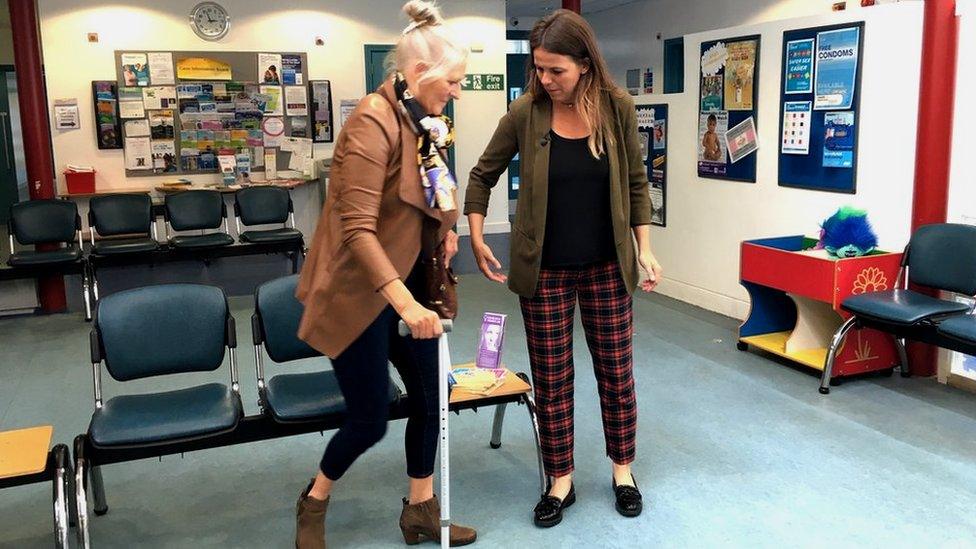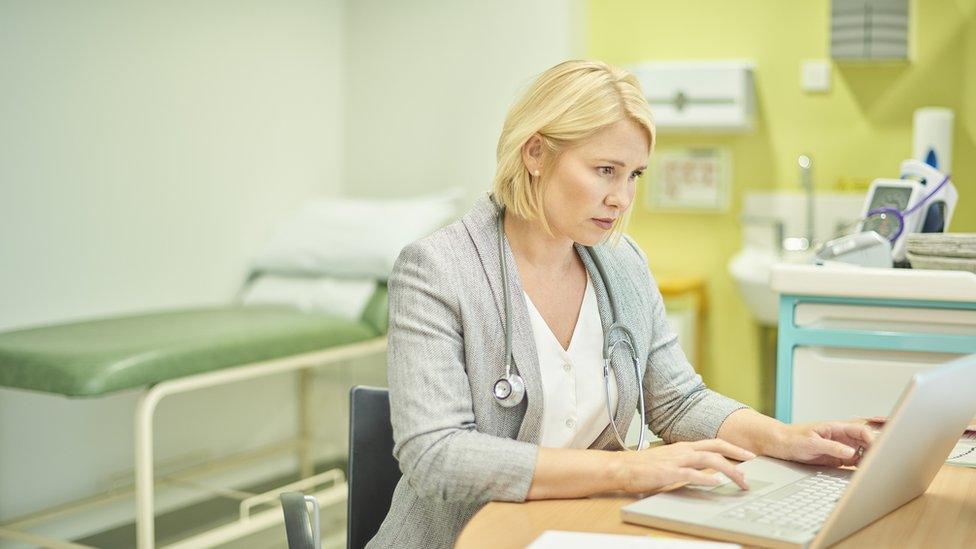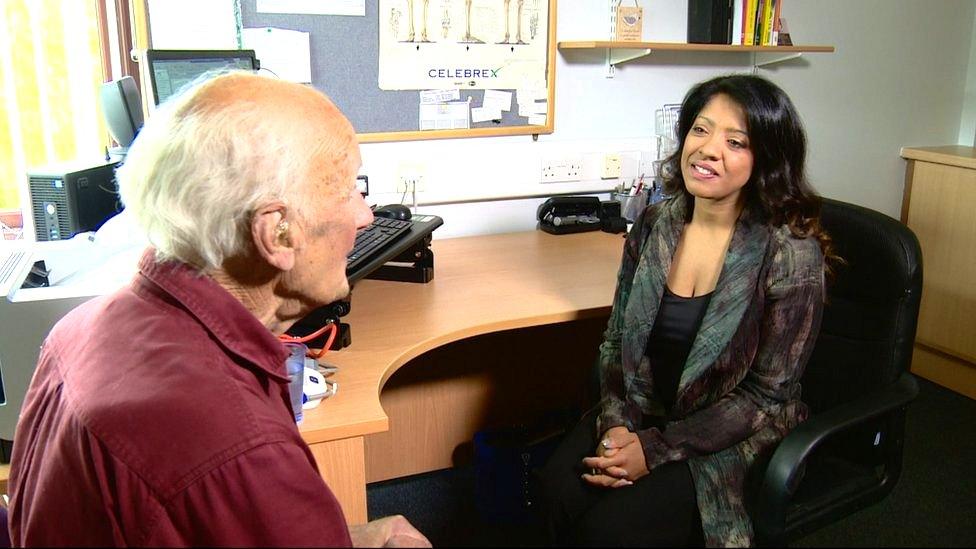Patients 'should get 15-minute appointments with GPs'
- Published

Dr Carey Lunan wants to be able to spend more time with patients like Agnes at her practice in Craigmillar in Edinburgh
Patients should get appointments with GPs lasting at least 15 minutes rather than 10, according to the Royal College of GPs.
In a report, it warns nearly 40% of GPs in Scotland feel overwhelmed by their workload at least once a week.
And it has called for 11% of NHS funding to be allocated to general practice to tackle health inequalities.
The Scottish government said a record number of GPs were working in Scotland and there were plans to recruit more.
The Royal College of GPs (RCGP) report said family doctors were concerned that "workload pressures, rising patient demand and under-investment" were having a significant impact on both doctors and patients.
'People deserve better'
It has called on the government to introduce a series of measures to "bolster the GP workforce and increase the level of spending". They include:
More GPs brought into the system to allow for minimum 15-minute appointments as standard
GPs serving areas with high socio-economic deprivation to be appropriately resourced
More GPs to build and lead community healthcare teams
Urgent investment in IT to ensure that systems work more effectively together
Investment to enable 25% of the undergraduate medical school curriculum to be delivered in primary care.
RCGP Scotland chairwoman Dr Carey Lunan said: "Nearly 40% of GPs report that they feel so overwhelmed by their daily tasks that they feel they cannot cope at least once per week.
"A quarter also report that they are unlikely to be working in general practice in five years' time.
"General practice is the backbone of a sustainable NHS. Our patients deserve better and it is time to renew general practice in Scotland.
"With an increase to 11% of the NHS budget, additional GP funding would flow to the areas of highest patient need.
"This will help to tackle the root causes of health inequalities, improve GP recruitment into areas of deprivation which traditionally struggle to attract GPs, and reduce pressure on vital hospital services."

GPs have expressed concerns about their workload
The Scottish government said it was committed to addressing the "underlying causes" that drive health inequalities.
A spokeswoman added: "Our bold package of measures to help tackle issues such as smoking, obesity, inactivity and alcohol misuse will support people to live longer, healthier lives.
"We are also tackling the wider causes of health inequalities through measures such as investing in affordable housing, providing free school meals and continuing to provide free prescriptions and personal care.
"We now have a record number of GPs working in Scotland, with more per 100,000 population in Scotland than the rest of the UK, and we are increasing the number by a further 800 over the next decade."

'Pressures and rush'

Dr Sigi Joseph says she feels under pressure to "squeeze in" more patients like Patrick Cunningham
One of the key findings of the report was that GPs felt appointment slots to be increased from 10 minutes to 15 minutes as standard.
Dr Sigi Joseph, of Pathead Medical Centre, Midlothian, said: "We, like many, try to squeeze many problems and conditions into one consultation and I think we are finding that, nationally, it is more and more difficult to fit into these 10-minute structures.
"A lot of patients have waited a bit of time to see the named doctor and we want to give each patient the contextualised care. We know those patients and we want the continuity for our patients, so when they are there, and even if they have waited in the waiting room because I am running late, then I am not going to rush that next person.
"Obviously the time pressure builds up throughout the day, and trying to do the best job for our patients in that time pressure is what we are aiming for."
'Quite guilty'
Dr Joseph said it was proving difficult to provide a thorough consultation within the 10-minute time slot.
"We are finding everyone is living longer, they've got more medical problems, and to give those patients the justice and service that they need, we definitely need more time as a standard."
Patient Patrick Cunningham admitted feeling "quite guilty" when his consultation ran over 10 minutes.
He said: "It does seem unfair to take a lot of the GP's time up if you don't have to take it up, and I don't really know if there are more people with worse problems than me waiting and I'm holding them up.
"It means you've got to rush a little bit and you haven't got the time you would normally like to discuss problems."